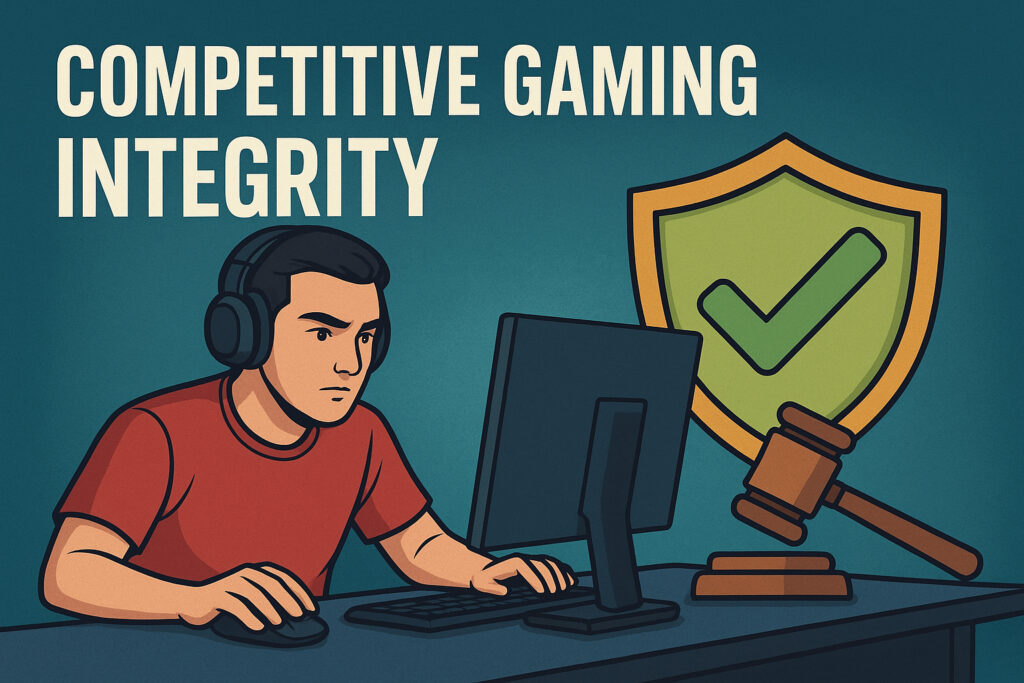In recent years, esports has transformed from a niche pastime into a global industry worth billions. With major tournaments filling stadiums, millions of fans watching online, and players earning celebrity status, competitive gaming is now taken as seriously as traditional sports. At the heart of this transformation lies a crucial concept: competitive gaming integrity. Without it, the credibility of esports—and the trust of its audience—would collapse.
What Does Competitive Gaming Integrity Mean?
Competitive gaming integrity refers to the fairness, honesty, and transparency within the world of esports. It ensures that every match is played on a level playing field, where skill, teamwork, and strategy—not cheating or exploitation—determine the outcome. Integrity protects both the reputation of the games themselves and the players who dedicate countless hours to mastering them.
Challenges to Integrity in Esports
Maintaining integrity in competitive gaming is not without obstacles. Some of the most pressing challenges include:
-
Cheating and Hacking
From wallhacks in Counter-Strike to aim-bots in Valorant, cheating undermines the spirit of competition. Developers must constantly innovate anti-cheat technologies to stay ahead of those attempting to exploit systems. -
Match-Fixing and Betting Scandals
With the rise of esports betting, there have been instances where players or teams manipulate outcomes for financial gain. Such scandals damage trust and highlight the need for stricter regulations. -
Toxicity and Unsportsmanlike Behavior
Integrity extends beyond game mechanics. Respectful communication and fair treatment of opponents are equally important in fostering a professional and inclusive competitive environment.
Why Integrity Matters
Esports thrives on community trust. Fans invest time, money, and passion into watching their favorite players and teams compete. If they believe results are manipulated or matches are unfair, the industry risks losing its legitimacy. By ensuring integrity, esports organizations protect the future of competitive gaming while also inspiring the next generation of players to engage ethically.
Building a Culture of Integrity
Safeguarding competitive gaming integrity requires collective effort:
-
Developers must implement robust anti-cheat software and respond quickly to exploit reports.
-
Tournament organizers should enforce strict codes of conduct and maintain transparency in rulings.
-
Players and teams need to commit to fair play and professional behavior.
-
Fans also play a role by supporting ethical practices and discouraging cheating culture.
Conclusion
Competitive gaming integrity is more than just a buzzword—it is the foundation upon which esports stands. As the industry continues to expand, preserving fairness and honesty will be vital to ensuring long-term growth. True champions are not defined by shortcuts, but by their skill, dedication, and respect for the game.
